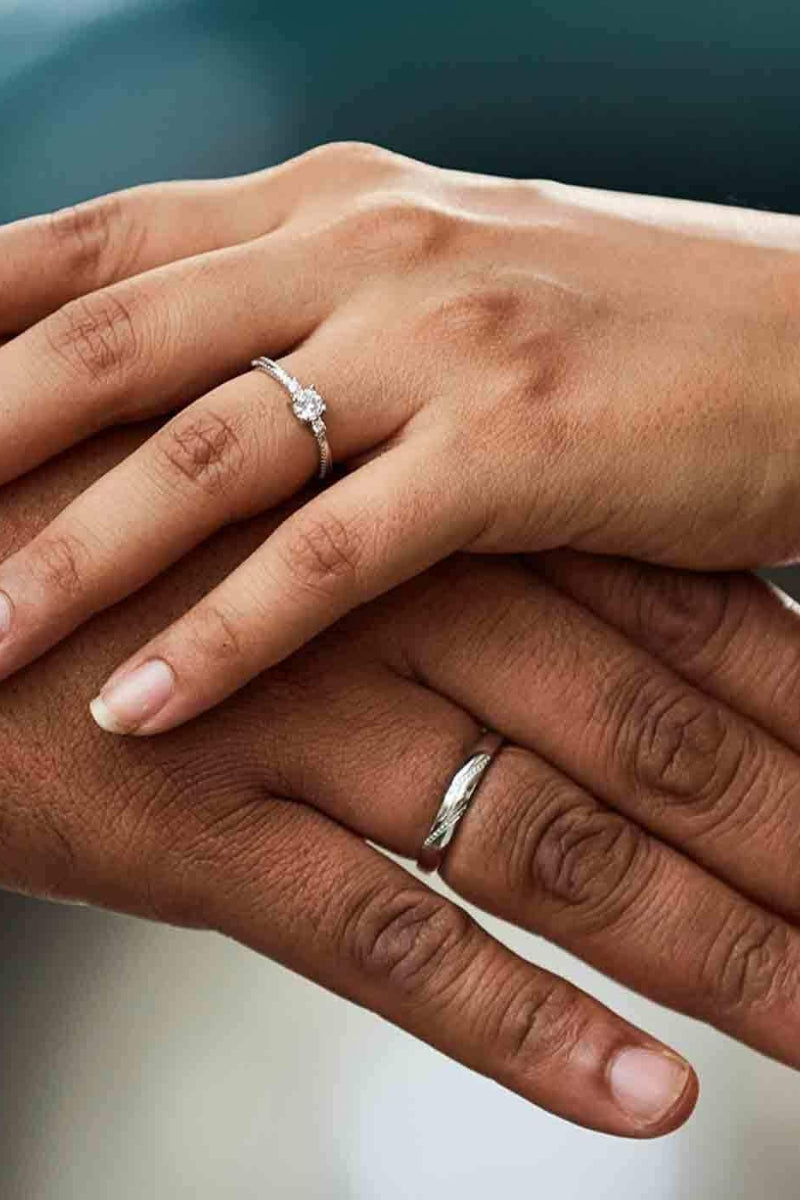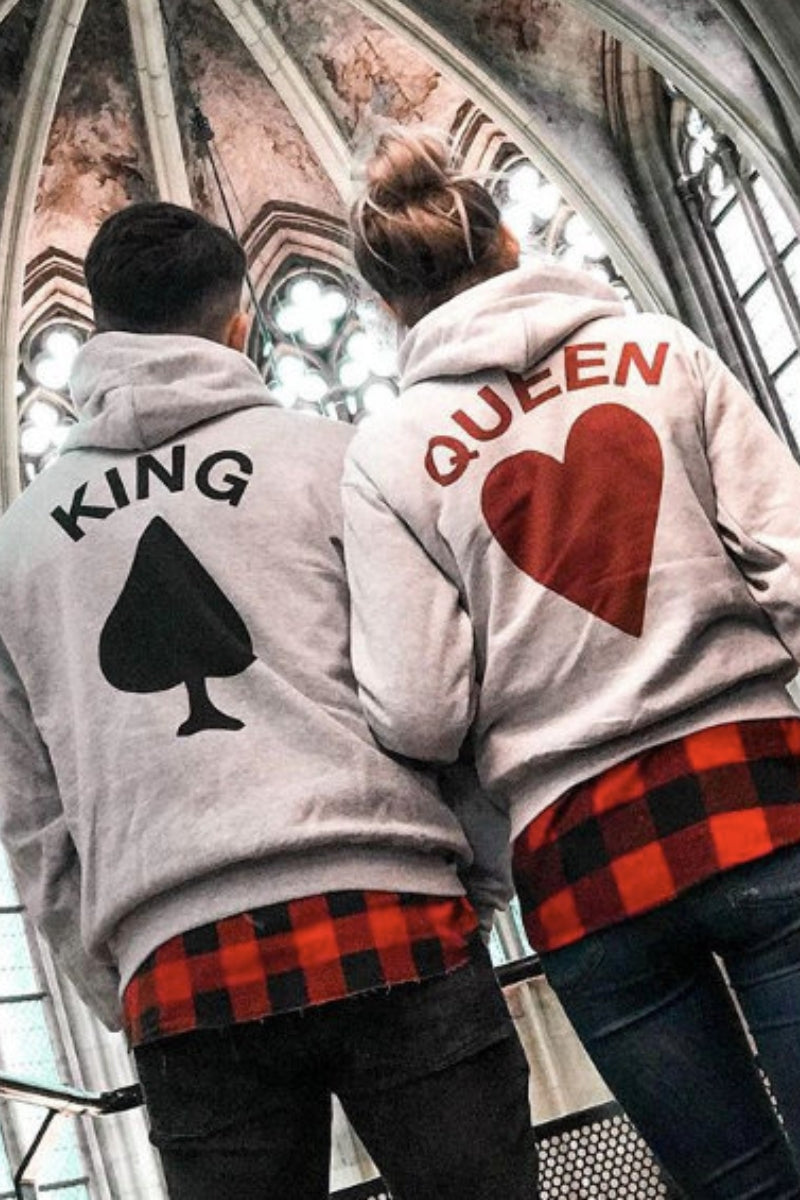As we each navigate the ups-and-downs of our love lives — from meet-cute to breakup and back again — we're constantly learning more about ourselves, what we want in life, and what we value in relationships. Over time, everyone develops their own unique set of core values: fundamental beliefs that influence how we conduct ourselves in all aspects of life, including our romantic relationships.
"Core values are fundamental beliefs that help to guide and dictate a person's behaviour as well as inspire someone to commit to a particular action that is in line with certain life goals and fulfillment," Katie Krimer, MA, LMSW, & Therapist, tells Bustle. "Core values as they pertain to a romantic relationship refer to those same fundamental beliefs that might make one feel safe, comfortable, inspired, passionate, and connected to their partner and within the relationship."

Because our core values are so intrinsic to who we are as individuals, it's only natural that we're better suited to a romantic partner who shares our values and beliefs. But in order to be able to recognize when a potential partner is the right fit for you, you have to first get to know yourself and your core values.
"Becoming aware of your core values will help you become aware when someone's values aren't aligning with yours."
"Becoming aware of your values can help you make the important decisions about how you want to live your life," Krimer says. "Knowing and sticking to your values can help you adjust and change your life in order to align more closely with what is most important to you. Similarly in relationships, becoming aware of your core values will help you become aware when someone's values aren't aligning with yours."
Simply put, if you aren't aware of your own core values, it will be difficult to find a partner with whom you're truly, fundamentally compatible. If you're totally lost and need somewhere to start your soul-searching, here are five examples of core values that you should know your stance on — and then look for in someone else.
1 Honesty
Without trust, it's nearly impossible to build a stable, healthy relationship — and if your partner has a habit of dishonesty, it'll be extremely hard to genuinely trust them.
"Honesty can be a dealbreaker for many individuals," Anza Goodbar, Certified Coach, Speaker & Trainer, tells Bustle. "No matter how bad the news, people would rather hear things straight from the hip than be lied to, no matter how innocent the lie may seem to one partner."
2 Accountability
There's nothing more frustrating than a partner who refuses to take accountability for their actions. If you can't stand the idea of a partner who won't own up to their mistakes, then this is one core value you should never compromise on.
"Accountability may be another value couple find to be important when building a committed relationship," Goodbar says. "Accountability builds trust and authenticity in a relationship. It also eliminates secrets which can tear down trust and cause the relationship to decline."
3 Open Communication
Learning how to commmunicate better with your partner is a skill that will take time to perfect in any relationship — but if your partner flat-out refuses to communicate in an open, honest way, it's OK if that's a dealbreaker core value.
"Open communication is another area couples like to find compatibility with their partner," Goodbar says. "Communication style is important when connecting and showing value to your partner."
4 Your Financial Philosophy
Money makes the world go 'round, but it's also the main cause of stress in relationships — so it's important to know how both you and your partner view money, and what value you each place on it (and make sure to actually talk about money in your relationship).
'Materialism [versus] experientialism is also a value that comes in handy when it comes to dealing with money," Goodbar says. "Couples can have... hard line thoughts about how they value spending versus saving, and what types of things they like to spend money on."

5 How You Express Anger
Every couple will have arguments from time to time, but how you resolve conflict says a lot about how healthy your relationship is. If you and your partner both express anger in different ways, that can eventually have an impact on your relationship.
"Expressing anger in a healthy way could also be considered a core value in a relationship," Goodbar says. "Feeling safe to make mistakes is essential to creating trust and personal growth. If someone is fearful of disappointing or upsetting a partner, they may not be fully authentic and that could lead to resentment and unrealistic expectations in a relationship."
6 How To Figure Out What Your Core Values Are
You probably already have at least a vague idea of what your core values are, but if you want to really self-reflect, there are questions you can ask yourself that will help you figure out what you value most, both in life and in your relationships. Here are some questions that Krimer says you can ask yourself to help guide you in figuring what your own core values are:
1. What in life makes me feel the most fulfilled?
2. What moments have brought me the most happiness?
3. Consider a moment in life that was really meaningful for you. What gave it that meaning? What makes it stand out?
4. Consider a time when you were feeling unhappy or uncomfortable. Was there a particular value that wasn't being addressed or that was being pushed down?
5. What makes you feel the most like yourself?
6. What in your life do you feel like you need in order to be your most genuine and satisfied self?
If you're totally honest with yourself when answering these questions, your answers will reveal a lot about what actually matters to you in life — and you can use that knowledge to help you figure out what kind of partner you want, and what you want your future relationship to look like. But even if you and your partner don't share all of the exact same core values, don't worry: it doesn't mean the relationship won't last.

"Being willing to explore and validate the importance of each others' values can help two people come closer to being on the same page."
"This doesn't always mean a relationship is doomed — in fact it can be the beginning of a discussion and exploration of each other's values and a way to build curiosity about the other," Krimer says. "Being willing to explore and validate the importance of each others' values can help two people come closer to being on the same page."
Ultimately, as long as you're fulfilled in your relationship and feel like you can be your authentic self around your partner without sacrificing any of your core values (and your partner should feel the same!), then you're already well on your way to a healthy, happy, long-lasting relationship.






